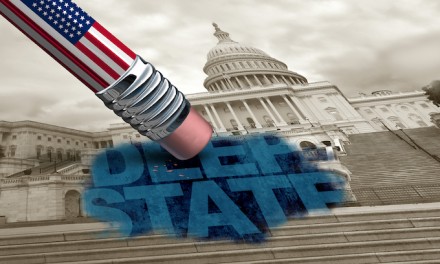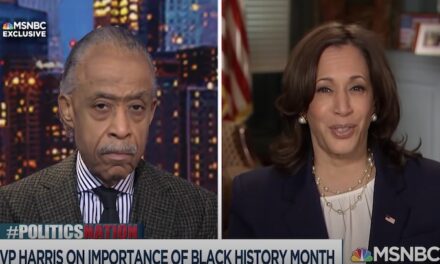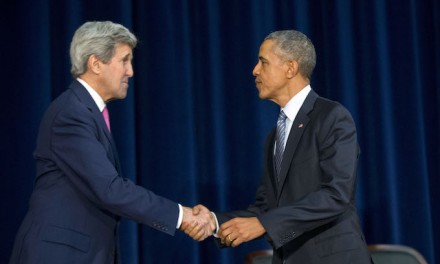Americans need to live and let live. Let the LGBTQ activists practice their preferences, and let Christians live the Gospel.
On Thursday, the U.S. Supreme Court ruled 9-0 that a Catholic Social Services adoption agency in Philadelphia could continue to place children only with heterosexual couples, consistent with the Gospel’s definition of a family.
Though The New York Times depicted the ruling as a setback for gay rights and “evidence that religious groups almost always prevail in the current court,” it was far from either.
Unfortunately, the ruling settled nothing in the culture war between traditional religion and LGBTQ advocates.
Only a technicality managed to hold together the 9-0 majority. The ruling doesn’t guarantee that religious organizations such as Catholic Social Services will be able to practice their mission instead of being shut down. As Justice Samuel Alito wrote in protest, the ruling “might as well be written on the dissolving paper sold in magic shops.”
For over half a century, CSS placed children in foster and adoptive homes, according to its belief that “marriage is a sacred bond between a man and a woman.” No same-sex couple ever asked the agency for help, or CSS would have referred the couple to another agency.
In 2018, after a newspaper article quoted the Archdiocese of Philadelphia as saying that the agency did not serve same-sex couples, the city refused to renew its contract. Both the federal district court and the Third Circuit Court of Appeals rejected the agency’s claims that its constitutional right to practice its faith was infringed. But on a technicality, the Supreme Court reversed those lower court rulings.
The nine justices were able to agree on only one thing — that section 3.21 of the standard contract between Philadelphia and adoption agencies, a mere 56 words, meant that the city’s actions were not protected by a 1990 Supreme Court ruling in Employment Division v. Smith. All the city of Philadelphia has to do is remove that section and it will be free to bar Catholic Social Services from offering adoption services.
What Alito, Clarence Thomas and Neil Gorsuch argued in concurring opinions is that it’s time for the Court to get to the heart of the matter. That 1990 precedent said that a law could impinge on a religion in practice as long as it didn’t expressly and intentionally target it. The 1990 ruling upheld the firing of a government employee for smoking peyote, even though the employee claimed peyote was part of his religious ritual.
Alito, Thomas and Gorsuch declared that the 1990 precedent “urgently calls out for review.” It “can’t be squared with … the Free Exercise Clause” of the First Amendment. The dangers posed by that precedent “are not hypothetical.” A liquor law could have the practical effect of banning the use of wine in sacraments. A prohibition on butchering live animals could have, in effect, a ban of kosher meat. Or to the point, banning discrimination based on sexual orientation can put religious adoption agencies out of business.
Is our society so divided that we can’t live and let live — respect the rights of people of all sexual orientations but still allow people of faith to practice their beliefs?
The Supreme Court legalized gay marriage in 2015, and court rulings across the nation since then have guaranteed gay couples the right to adopt. The data show 21% of same-sex couples raising children have adopted, about seven times the rate for traditional couples.
But religious adoption agencies are being taken prisoners in the culture wars. Bethany Christian Services, one of the largest adoption and foster care agencies in the nation, had been finding homes for children for 77 years and operates in 32 states. But On March 1, it concluded that it had to start placing children with LGBTQ couples, against its principles, in order to maintain its government contracts.
There should be room for religious agencies to offer adoption services consistent with their creed and their centuries of service. The high court’s 9-0 ruling offers them no protection.
As Alito concluded, “Those who count on this Court to stand up for the First Amendment have every right to be disappointed — as am I.”
Betsy McCaughey is a former lieutenant governor of New York and author of “The Next Pandemic,” available at Amazon.com. Contact her at [email protected] or on Twitter @Betsy_McCaughey. To find out more about Betsy McCaughey and read features by other Creators Syndicate writers and cartoonists, visit the Creators Syndicate website at www.creators.com.



















Betsy McCaughey, Great commentary! The moral fabric of our society is being destroyed by the people (liberals) that scream “diversity” but they are exclusionary toward Conservatives. Conservatives are the moral fabric of society, liberals are immoral and as a result, liberals tear down the moral fabric of society.
AND that destruction is being CERTIFIED AS being ok, by these Nutters in robes.
“evidence that religious groups almost always prevail in the current court,” Could have fooled me.
The tensions between LGBTQ and the Church—and society as a whole—rests in the LGBTQ community asserting that their rights are being violated. Everybody has the same rights under the Bill of Rights. LGBTQ wants more than that—they want acceptance by the Church—and ultimately by God—that their chosen lifestyle is morally valid and worthy of equal respect; hence, the word “rights” gets expanded to include social and religious acceptance and affirmation. By playing semantics, they can cloud the issue and hopefully fool enough people so that they eventually accomplish their objective of equal standing in the eyes of the law, in the eyes of society, and in the eyes of God.
Not just acceptance, but to FORCE YOU TO celebrate their depravity,… OR ELSE.
“The Supreme Court legalized gay marriage in 2015, and court rulings across the nation since then have guaranteed gay couples the right to adopt. “,,,,,,,,,,,make that the secular right to redistribute human flesh and spirits as indiscriminately as they redistribute our personal property. They would redistribute our human potential which their Sexual lifestyles cannot produce as readily as the personal property and wealth their liberal incomeptence and spiritless mindests refuse to produce. It does not get any more personal to the worth of a human soul than Where and how an American child is brought up. But rememeber, those who scrape human life away in the womb to satiate the immediate gratification of not having to live responsibly for the reuslts of their actions, think nothing of assigning the raising of an innocent human soul in an arena of mental confusion and soul destroying example. There is no more important job in this nation than for a couple to raise a quality human being. When it comes to power seeking self-god liberals, quantity of future voting rolls always trumps quality of human lives. Former SUpreme courts have so many times proven their intellectual and spiritual inferiority, let’s hope the new crew starts getting it right for a change.